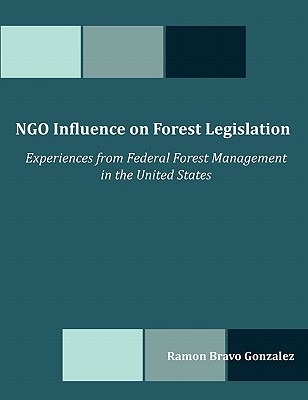
- We will send in 10–14 business days.
- Author: Ramon Bravo Gonzalez
- Publisher: Dissertation.Com
- Year: 2010
- Pages: 94
- ISBN-10: 159942293X
- ISBN-13: 9781599422930
- Format: 18.9 x 24.6 x 0.5 cm, minkšti viršeliai
- Language: English
- SAVE -10% with code: EXTRA
Reviews
Description
In the last two decades, a concern on how federal forests in the United States are managed has provoked concerns among different stakeholders, including NGOs. The purpose of this thesis is to contribute to the understanding of NGO influence on forest management legislation. Eight aspects were selected and compared in different study cases referring to legislative proposals dealing with forest management in order to define success criteria for a legislative initiative. The study indicates that the following criteria are particularly important to fulfill in order to influence forest management legislation: - The issue to address should be on the political agenda and have high public interest. - Environmental and social aspects should not be at the expense of economic aspects. - The legislative initiative should be prepared in multi-stakeholder processes, including local government and organizations. - The supporters of the initiative should take part in all decision-making processes and advise the Government in aspects related to their areas of expertise. NGOs would likely improve their chances of influencing forest management legislation if they hold a flexible position regarding legislative proposals containing similar or even less strict measures than their own initiatives, look at market oriented schemes as alternatives to legislation, and maintain good relationships with other major stakeholders.
EXTRA 10 % discount with code: EXTRA
The promotion ends in 22d.13:31:57
The discount code is valid when purchasing from 10 €. Discounts do not stack.
- Author: Ramon Bravo Gonzalez
- Publisher: Dissertation.Com
- Year: 2010
- Pages: 94
- ISBN-10: 159942293X
- ISBN-13: 9781599422930
- Format: 18.9 x 24.6 x 0.5 cm, minkšti viršeliai
- Language: English English
In the last two decades, a concern on how federal forests in the United States are managed has provoked concerns among different stakeholders, including NGOs. The purpose of this thesis is to contribute to the understanding of NGO influence on forest management legislation. Eight aspects were selected and compared in different study cases referring to legislative proposals dealing with forest management in order to define success criteria for a legislative initiative. The study indicates that the following criteria are particularly important to fulfill in order to influence forest management legislation: - The issue to address should be on the political agenda and have high public interest. - Environmental and social aspects should not be at the expense of economic aspects. - The legislative initiative should be prepared in multi-stakeholder processes, including local government and organizations. - The supporters of the initiative should take part in all decision-making processes and advise the Government in aspects related to their areas of expertise. NGOs would likely improve their chances of influencing forest management legislation if they hold a flexible position regarding legislative proposals containing similar or even less strict measures than their own initiatives, look at market oriented schemes as alternatives to legislation, and maintain good relationships with other major stakeholders.


Reviews